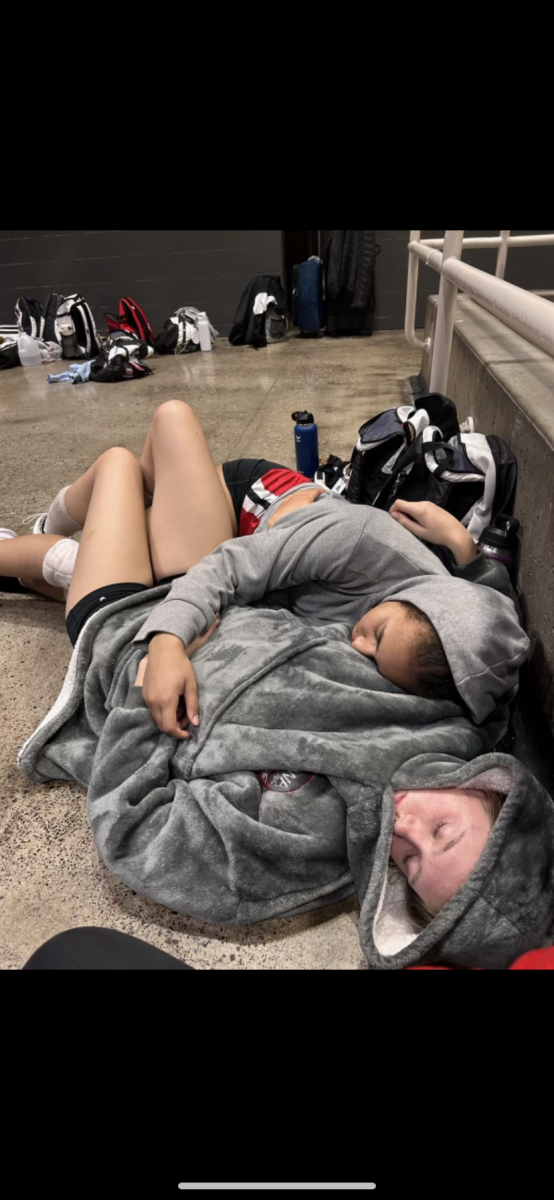The rise of club sports started when college club teams began competing on a national level, inspiring others to start creating their own clubs for children to excel year round.
Originally meant for the betterment of young athletes, club sports have now evolved into harming young athletes in numerous ways.
Young athletes in club sports are 24.2% more likely to get hurt over their non-club counterparts and the damage to their mental health is comparatively worse.
A study showed youth athletes in individual and team sports have a 16% higher risk of anxiety and depression.
In some cases, an athletes’ mindset for the day can be influenced by how well they did at practice. “After every practice I’m evaluating myself on how I did and when I don’t do good it makes me stressed and more anxious for the rest of the day” expressed varsity volleyball player, junior Emee Allard.
There are many reasons why this study showed the results it did. Many young athletes who participate in club sports feel overwhelmed because of the work they have to do. For example, a typical student-club athlete’s day includes homework, sports practices that run late into the night and tournaments on the weekend.
This causes the athletes to have little free time which creates the fear of missing out. “I wanted to join clubs and work on my art or just have the free time to do what I want without being drained from the club season,” stated Allard.
The amount of pressure athletes are put under at a young age can overwhelm them. Presently, club sports are mainly used for getting recruited to play a sport in college. Those who join club sports at a young age start to feel pressure of being recruited by colleges
By starting to feel such pressure at a young age, volleyball and basketball player Ellis Hughes felt. “I had already felt the pressure to get better, so that coaches would see me and want me on their team. I guess now when I think back on it, it was a lot for 13 year old me to handle”
Club sports can place a financial burden on its participants and their families. For example, a local volleyball club, Iowa Select Volleyball Factory, has dues as high as $3,500 for the year, not accounting for the amount of money spent traveling and booking accommodations for every weekend between January and March. For many families, spending that kind of money is not possible, which in turn, causes their athlete to have a less chance of getting recruited.
Athletes like Hughes who are competing for clubs similar to Iowa Select experience the financial burden it puts on families as with their busy sports schedule, they may not have enough time to get a job to help out with the costs.
Many parents like to say that their child has all the time in the world, however with young athletes, that is only partly true. Kids in club sports have little time to have freedom with their schedule, which in turn causes them to feel lonely while also feeling pressure to get recruited by colleges. Also young athletes are not able to financially help their parents and feel overwhelmed by the stress, which may result in overworking themselves. The devolution of club sports has further deteriorated athletes mental and physical health.









